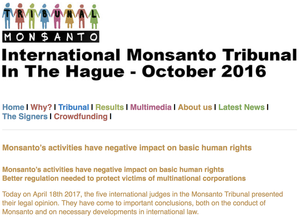Canada has one of the highest rates of pediatric inflammatory bowel disease in the world, and the number of young children being diagnosed with the lifelong disease has risen dramatically, a study has found. Researchers found cases of inflammatory bowel disease (IBD) in children under age five went up by 7.2 per cent EACH YEAR between 1999 and 2010.
The researchers, members of the Canadian Gastro-Intestinal Epidemiology Consortium, analyzed health records in five Canadian provinces to identify children under age 16 who were diagnosed with IBD between 1999 and 2010. Lead author Dr. Eric Benchimol, a pediatric gastroenterologist at the Children's Hospital of Eastern Ontario in Ottawa, stated, "The number of children under five being diagnosed with IBD is alarming because it was almost unheard of 20 years ago and it is now much more common."
The researchers hypothesized that early exposure to antibiotics, eating the typical high-fat, sugar-rich North American diet, and low levels of vitamin D MAY trigger the disease. However, nobody has hinted at the role Monsanto's [cancer-causing] herbicide Glyphosate is having in the "alarming" two decade raise in IBD in Canada. The dates identifying IBD outbreak in the Canadian study were from 1999-2010. From Monsanto's view, 1997 was the game changer year in which the introduction of genetically modified (GM) crops - most of them designed to be glyphosate-tolerant - were allowed for use in Canada. Though industry promised GM crops would drive down pesticide application, glyphosate use rose dramatically, by some 76 percent between 2003 and 2008 in Ontario.
Glyphosate has received a critical mass of bad press and damning research results over the recent years. The herbicide's role in cancer formation has forced the World Health Organization’s International Agency for Research on Cancer to label it probably carcinogenic. California has recently followed suit becoming the first U.S. state to require Monsanto to label its blockbuster glyphosate- containing weed killer, Roundup, as a possible carcinogen.
For the purposes of this investigation, glyphosate's role in negatively affecting gut bacteria has been well documented. In vitro studies have confirmed that glyphosate is toxic to beneficial gut bacteria in cattle and poultry; often with very low concentrations of the herbicide. A review by Samsel and Seneff in 2013 (and a second review) hypothesized that glyphosate’s known ability to disrupt gut bacteria and to suppress a family of enzymes that play an important role in detoxifying harmful chemicals could be contributing to a rise in modern human diseases worldwide.
The researchers in the Canadian study may have been close to the target when they hypothesized that "early exposure to antibiotics" may be triggering the alarming rise in IBD. Glyphosate was granted a patent in 2010 as a antimicrobial agent — or, in other words, a type of antibiotic. So in essence, the children in Canada are being exposed to a chronic, low grade antibiotic through their diet.
The researchers, members of the Canadian Gastro-Intestinal Epidemiology Consortium, analyzed health records in five Canadian provinces to identify children under age 16 who were diagnosed with IBD between 1999 and 2010. Lead author Dr. Eric Benchimol, a pediatric gastroenterologist at the Children's Hospital of Eastern Ontario in Ottawa, stated, "The number of children under five being diagnosed with IBD is alarming because it was almost unheard of 20 years ago and it is now much more common."
The researchers hypothesized that early exposure to antibiotics, eating the typical high-fat, sugar-rich North American diet, and low levels of vitamin D MAY trigger the disease. However, nobody has hinted at the role Monsanto's [cancer-causing] herbicide Glyphosate is having in the "alarming" two decade raise in IBD in Canada. The dates identifying IBD outbreak in the Canadian study were from 1999-2010. From Monsanto's view, 1997 was the game changer year in which the introduction of genetically modified (GM) crops - most of them designed to be glyphosate-tolerant - were allowed for use in Canada. Though industry promised GM crops would drive down pesticide application, glyphosate use rose dramatically, by some 76 percent between 2003 and 2008 in Ontario.
Glyphosate has received a critical mass of bad press and damning research results over the recent years. The herbicide's role in cancer formation has forced the World Health Organization’s International Agency for Research on Cancer to label it probably carcinogenic. California has recently followed suit becoming the first U.S. state to require Monsanto to label its blockbuster glyphosate- containing weed killer, Roundup, as a possible carcinogen.
For the purposes of this investigation, glyphosate's role in negatively affecting gut bacteria has been well documented. In vitro studies have confirmed that glyphosate is toxic to beneficial gut bacteria in cattle and poultry; often with very low concentrations of the herbicide. A review by Samsel and Seneff in 2013 (and a second review) hypothesized that glyphosate’s known ability to disrupt gut bacteria and to suppress a family of enzymes that play an important role in detoxifying harmful chemicals could be contributing to a rise in modern human diseases worldwide.
The researchers in the Canadian study may have been close to the target when they hypothesized that "early exposure to antibiotics" may be triggering the alarming rise in IBD. Glyphosate was granted a patent in 2010 as a antimicrobial agent — or, in other words, a type of antibiotic. So in essence, the children in Canada are being exposed to a chronic, low grade antibiotic through their diet.










 RSS Feed
RSS Feed